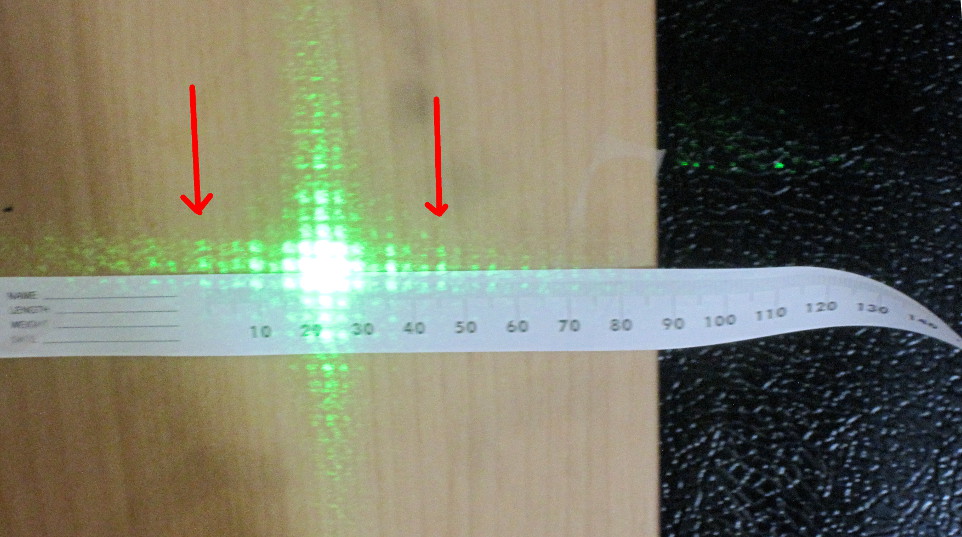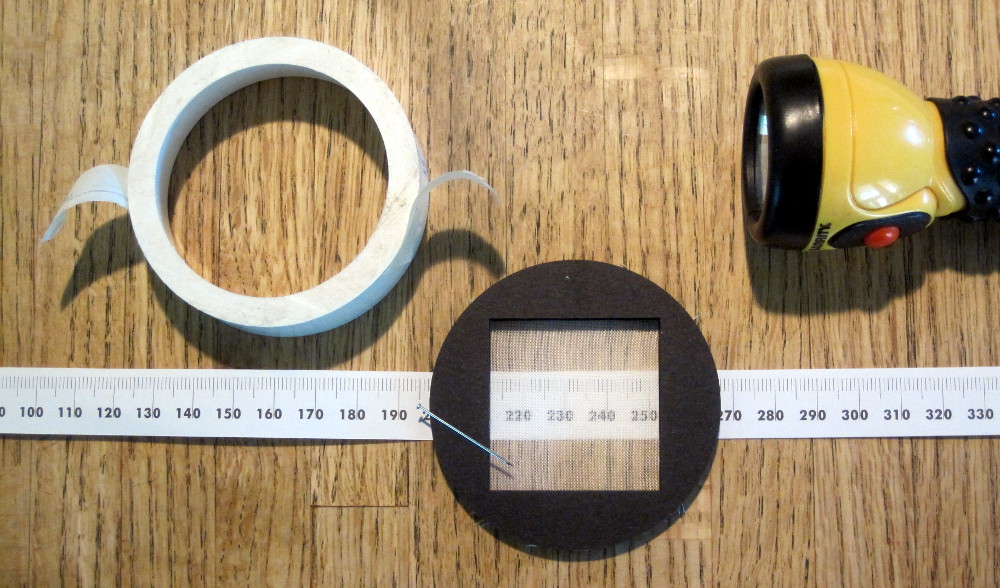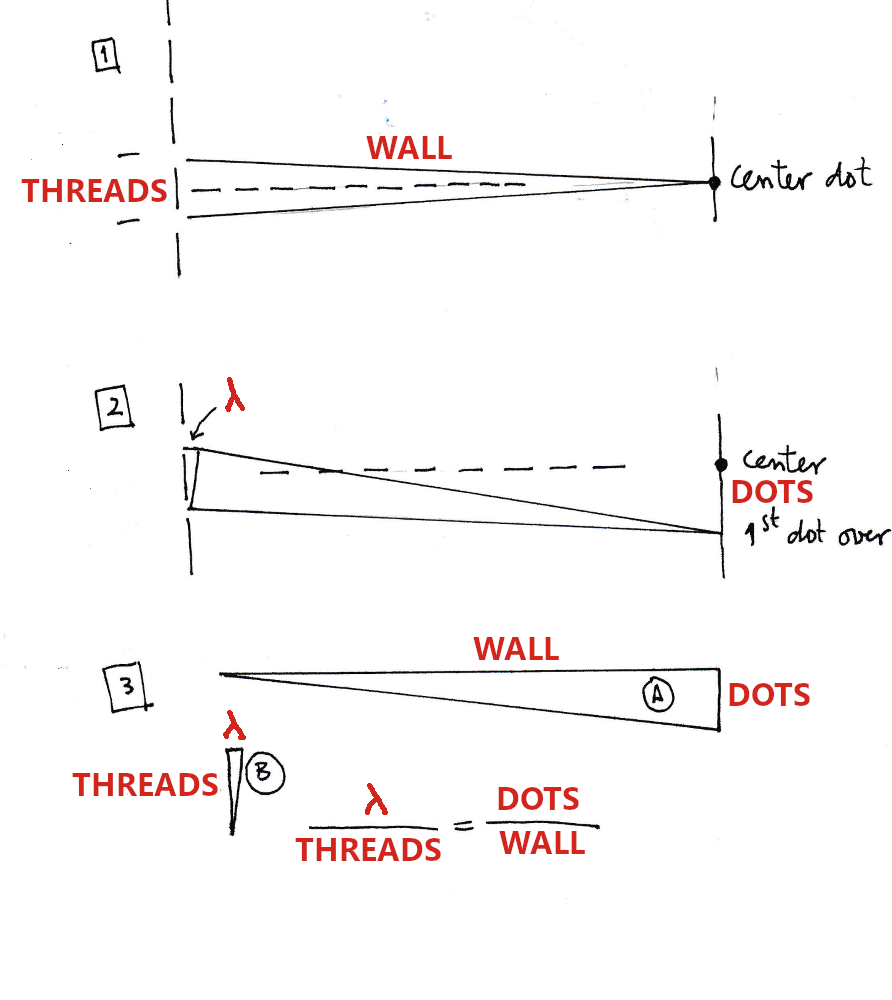On the wall, we want to measure the distance between dots.
To make this easier, tape a (piece of) the paper measuring
tape just underneath the center row of dots.
In this example, I count 15 dots between the left and right arrows,
or 14 gaps. You can see the distance between the arrows is 46 mm.
So here the spacing between the dots is 46/14 mm. Now do yours.
Let's call this spacing DOTS
DOTS = ______ mm
| 
|
| This step is optional, since it takes some time, but give it a try:
We need to know the spacing between the threads in the cloth.
If you lay the cloth on top of the paper ruler, you can count
how many threads there are in 10 mm.
It helps to have sharp eyes,
and a bright light. I use the sewing pin which you can find
stuck in the foam to not lose my place when I count.
Divide your count by 10.
(I counted 26 threads per cm, so my
threadspacing = 0.38 mm)
Call the distance between threads THREADS
THREADS = __________ mm

|
We need to measure the distance from the cloth to the wall. Use
the big tape measure, and convert cm to mm.
WALL - __________ mm
|
Now look at the diagram. In the top diagram [1] you can see 2 rays coming through adjacent openings between threads. They hit the far wall at the brightest center dot position. (Constructive interference)
In the second drawing [2] 2 rays constructively interfere to make the next dot on the wall. The triangle is tipped down, and the gap that opens up on the top left is one wavelength (lambda) wide.
We can now draw 2 skinny similar triangles [3]. Triangle (A) has short side DOTS and long sides WALL.
Small triangle (B) has small side lambda and long
sides THREADS.
Since the triangles are similar (same shape but different
size), the ratios between the short and the long sides is the same for
both, as shown in the equation. Multiply
both sides of the equation by THREADS, we get:
lambda = DOTS × THREADS / WALL
Since we did all measurements in mm, this is the wavelength in mm.
To convert to nanometers (nm), multiply by 1,000,000. Look on
the label on your laser to see how close you got.
lambda = ________ nm
Wavelength on the label = ________ nm
| 
| | |